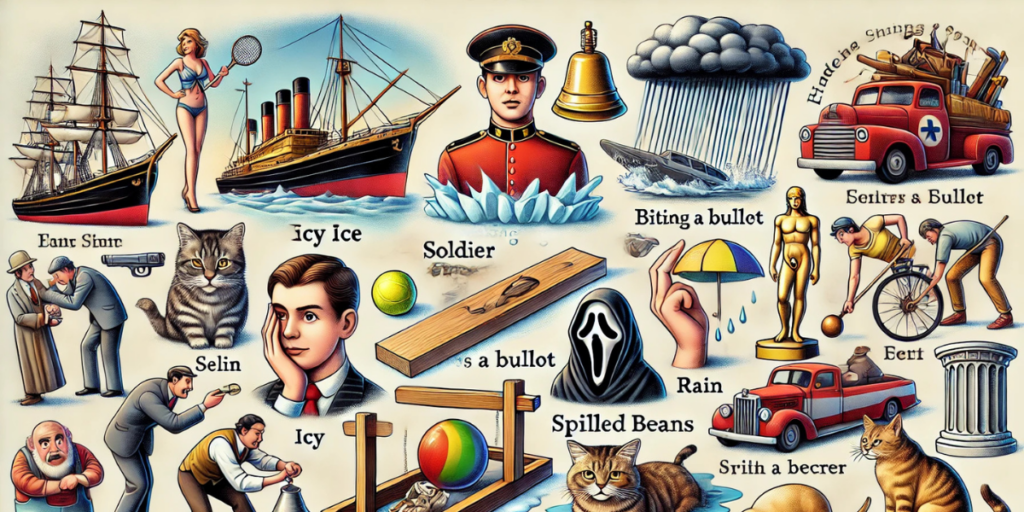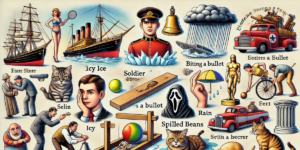The Flavorful History Behind Common Sayings
Idioms are like the seasoning of language—a pinch here, a dash there, and suddenly, your conversation has flavor. But do you know the bizarre history behind common sayings and idioms? Behind every phrase lies a story, often stranger than fiction, and sometimes involving graveyards, butter sculptures, or suspiciously sneaky cats. Let’s dig into the hidden origins of these idioms and have a little fun along the way.
1. Break the Ice
Origin: Back in the day, when ships were trying to navigate icy waters, smaller boats were sent ahead to, quite literally, “break the ice.” Think of them as the world’s first awkward icebreakers.
Modern Meaning: To start a conversation or ease tension in a social setting. Also useful when you’re stuck at an awkward dinner party.

2. Bite the Bullet
Origin: Picture this: It’s wartime, anesthesia isn’t a thing, and a surgeon is coming at you with a rusty saw. The solution? Bite down on a bullet and hope your dentist isn’t judging your molars.
Modern Meaning: To face something painful or unpleasant with bravery (and maybe a strong jawline).
3. The Ball Is in Your Court
Origin: Tennis players, long before the invention of emoji-filled group chats, used to say this. When the ball crossed the net, it was your turn to deal with it—no excuses.
Modern Meaning: It’s your move, buddy. Don’t just stand there.
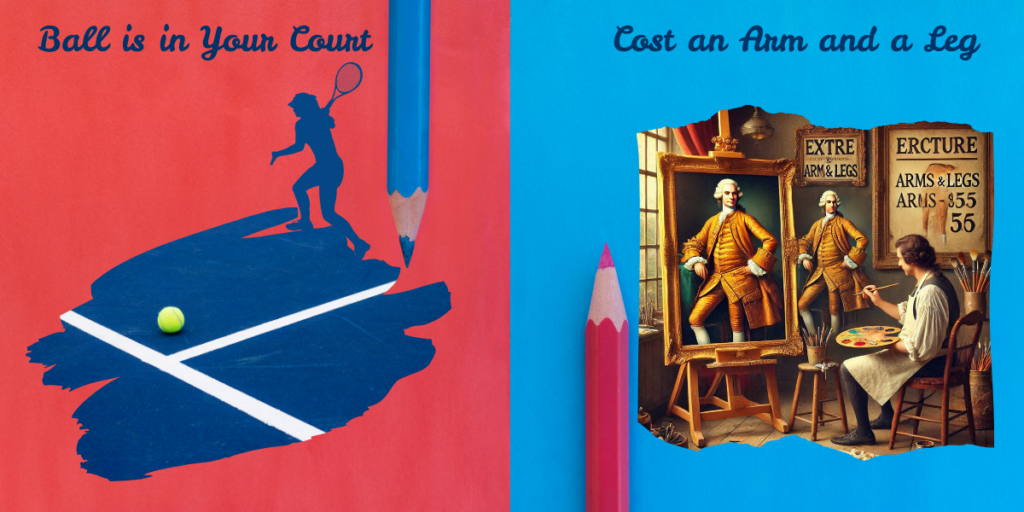
4. Cost an Arm and a Leg
Origin: In the 18th century, painters charged extra if you wanted your portrait to include fully detailed arms and legs. Apparently, limbs were luxury items.
Modern Meaning: Something outrageously expensive, like concert tickets or your favorite streaming subscription.
5. Saved by the Bell
Origin: Believe it or not, people were once so afraid of being buried alive that they rigged coffins with bells. Ding-ding, I’m not dead yet!
Modern Meaning: Narrowly escaping disaster at the very last moment, like submitting a report at 11:59 PM.
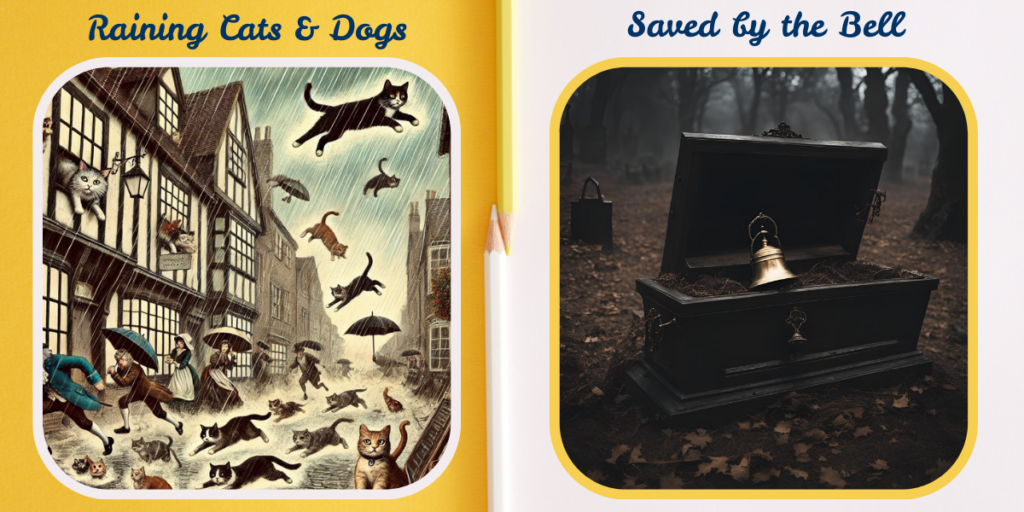
6. Raining Cats and Dogs
Origin: In 17th-century England, storms were so intense that stray animals would literally be swept off rooftops. Imagine the weather forecast: “Expect heavy rain, with a 100% chance of cats and dogs falling from the sky. Better bring your umbrella… and maybe a leash!”
Modern Meaning: Really, really heavy rain. Umbrellas are mandatory.
7. Spill the Beans
Origin: Ancient Greeks used beans to vote secretly. If someone accidentally knocked over the jar—oops, democracy spoiled!
Modern Meaning: To accidentally reveal a secret. Usually happens in group chats.
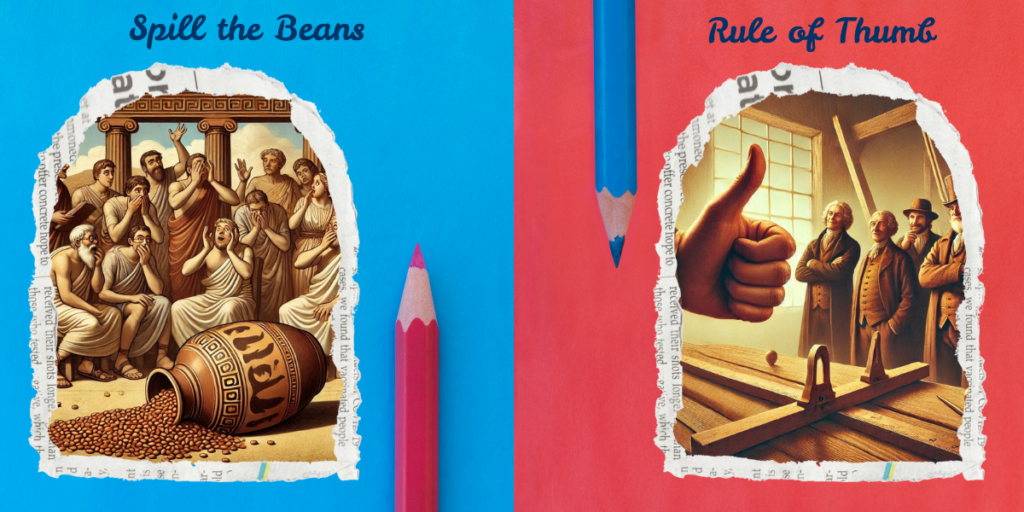
8. Rule of Thumb
Origin: Allegedly tied to an old English law about stick sizes and punishment (yikes). However, historians argue it’s more likely from carpentry, where a thumb was used as a quick measuring tool.
Modern Meaning: A general guideline. No thumbs were harmed in the making of this definition.
9. Let the Cat Out of the Bag
Origin: In medieval markets, sellers would sometimes switch a pig for a cat in a sack. Surprise! Your bacon just meowed.
Modern Meaning: Accidentally revealing a secret, often with dramatic flair.
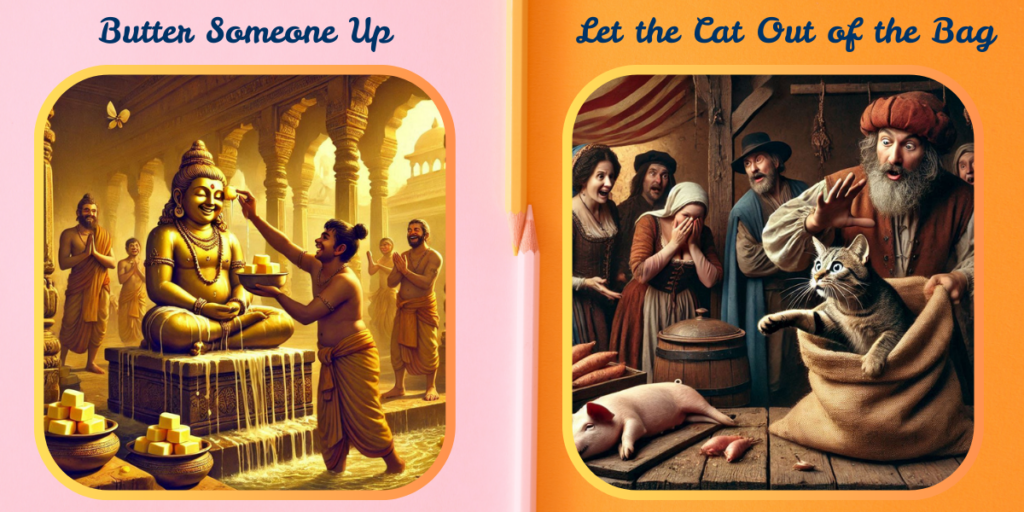
10. Butter Someone Up
Origin: In ancient India, people would literally bathe the sculptures of gods with butter. Yes, butter. Somewhere, a toast-loving deity was very happy.
Modern Meaning: To excessively flatter someone in hopes of gaining their favor. Or maybe free snacks.
The History Behind Common Sayings: A Fitting Conclusion
Idioms aren’t just quirky phrases—they’re tiny historical sitcoms wrapped in words. From biting bullets to sky-high pig-cats, these sayings remind us that language is anything but boring. So next time you casually let the cat out of the bag, remember: you’re also letting out centuries of history and a whole lot of unintentional comedy.
Curious about the world’s greatest enigmas? Continue your journey with our next article, Unsolved Mysteries: That Have Stood the Test of Time, and explore the perplexing cases that have baffled experts for centuries!

